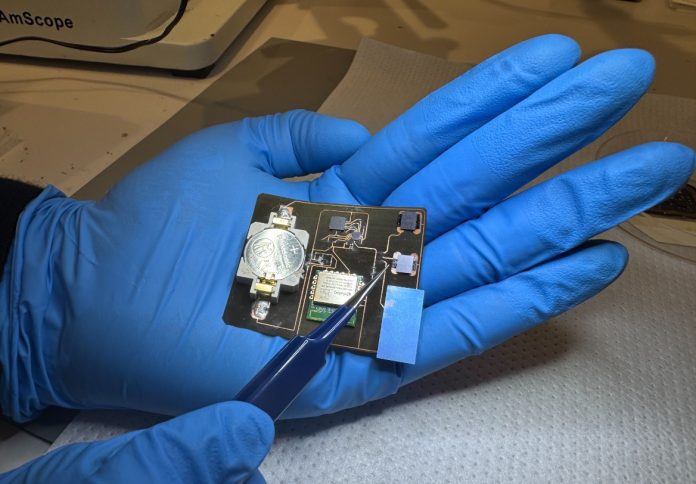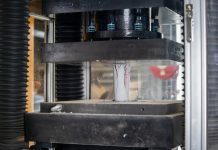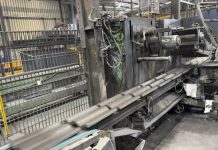
Researchers from RMIT University have developed a reusable smart wound monitoring device that could reduce infection risks and healthcare costs by enabling remote assessment of chronic wounds, a condition that affects around 500,000 Australians and costs the healthcare system approximately $3 billion annually.
Designed to track key indicators of wound healing such as temperature, pH, and inflammation levels, the wearable device incorporates integrated sensors and a Bluetooth connection, allowing clinicians to monitor wounds without the need to physically remove dressings for inspection.
RMIT said in a news reelase this approach could help accelerate intervention and lower the risk of infection from frequent physical contact.
“This was a test to show that this type of alternative monitoring technology is possible, and we are now ready to work with industry partners to develop it for clinical trials,” said lead inventor Dr Peter Francis Mathew Elango from RMIT’s School of Engineering.
“Its components are biocompatible and fit seamlessly into existing manufacturing workflows and processes, potentially bringing the cost below $5 per unit when produced at scale.”
Unlike disposable smart bandages and other emerging technologies, the RMIT device is designed for reuse, making it a more practical and cost-effective solution.
The technology uses flexible, high-resistivity silicon-based sensors to detect multiple biomarkers associated with wound healing.
According to RMIT, the platform has been tested on human skin to ensure that it conforms to curved surfaces, further supporting its real-world application in wound management.
Professor Madhu Bhaskaran, who leads the Functional Materials and Microsystems Research Group at RMIT, said the sensor technology represents a broader innovation in biocompatible electronics.
“The high-resistivity silicon-based sensor technology is our platform IP that has been proven to be efficient at multiple biomarker detection related to different ailments,” she said.
The research group has previously developed med-tech devices including sleep-monitoring bedding sensors for aged care, and Elango’s earlier work on a wearable heart monitor is now advancing toward commercialisation with Perth-based company Lubdub Technologies.
The team’s findings are detailed in the journal article Multiplexed cutaneous wound monitor for point-of-care applications, published in Advanced NanoBiomed Research.




















